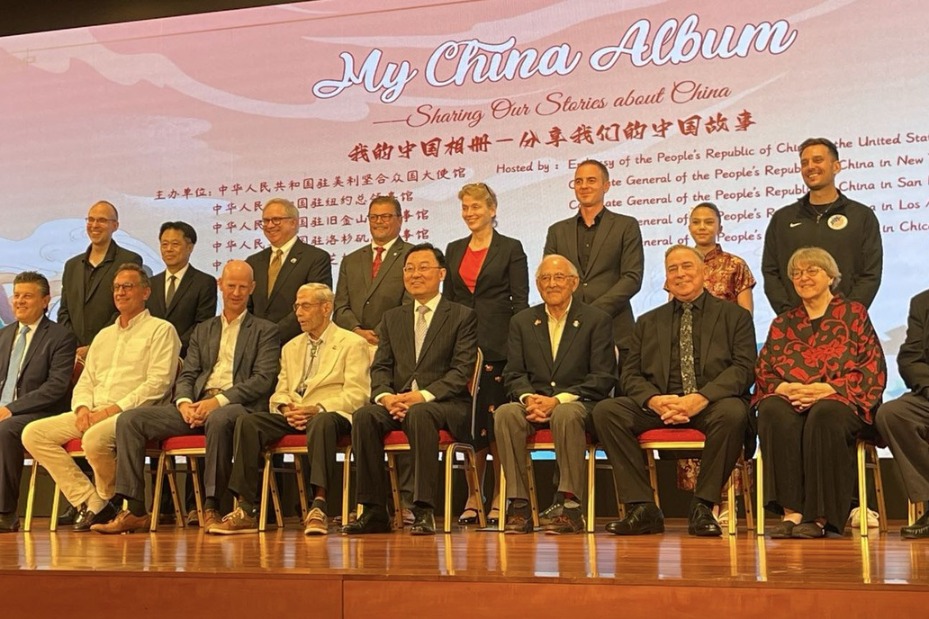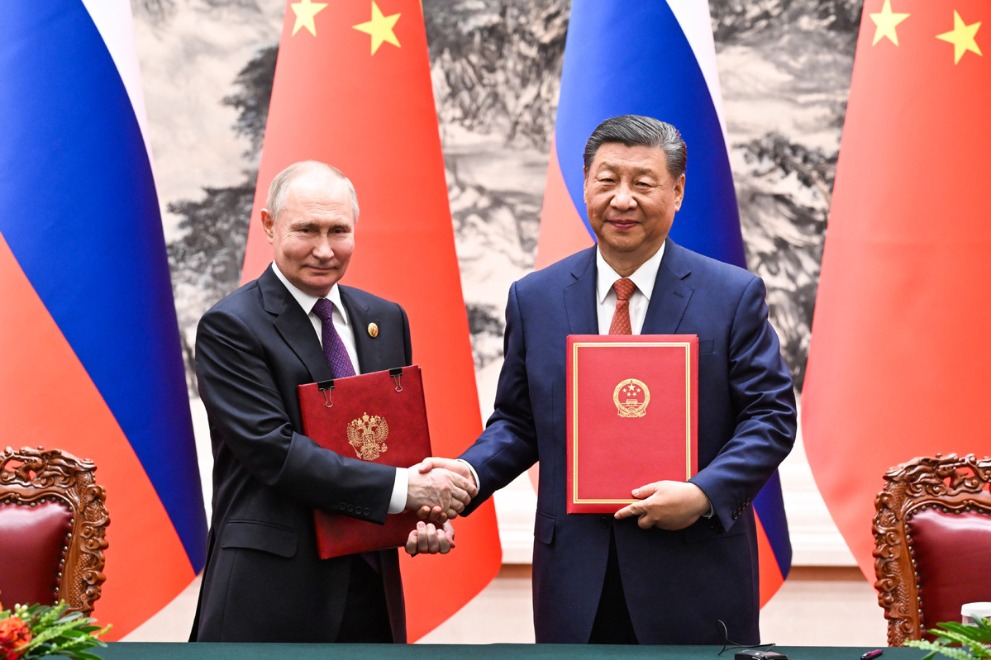BRICS can play bigger role in anchoring tumultuous world
By Zhang Xin | Xinhua | Updated: 2021-09-10 10:30

Since its inception in 2009, the emerging-market mechanism of BRICS has grown from strength to strength as its members can always come together to tackle shared challenges and achieve common goals.
On Thursday, leaders of the five BRICS countries -- Brazil, Russia, India, China and South Africa -- are scheduled to meet at a virtual summit for the second year. As they gather, they are facing a still rampant pandemic, an increasingly uneven global economic recovery as well as a torrent of rising non-conventional global security challenges.
BRICS represents more than 26 percent of the world's landmass, 42 percent of the global population and over 20 percent of the global gross domestic product (GDP), which puts it in a good position to play a vital role in dealing with this changing world. The time is now for the BRICS countries to reinforce their cohesion within the mechanism, and build up new consensus for more dynamic cooperation.
The top priority is to contain the pandemic as early as possible. To do that, the BRICS countries should not only strengthen their coordination in cross-border prevention and control measures, but also pool more resources and talent for vaccine cooperation, the most potent weapon to vanquish this deadly pathogen.
China launched the BRICS Vaccine Research and Development (R&D) Center-China Center this May, a move to implement what Chinese President Xi Jinping proposed at last year's summit. It is necessary to accelerate the construction of the vaccine R&D center, carry out production cooperation and help bridge the global vaccine divide.
As some U.S. politicians are peddling the so-called "Wuhan lab leak" theory in order to politicize the origins-tracing of the virus, the BRICS countries should jointly reject such ill-founded conspiracy theories and support a scientific and fact-based approach to solving the mystery of the disease.
The BRICS countries should also work together to further stimulate global economic rehabilitation. At the moment, the pandemic is accelerating the widening of the North-South development gap. Thus, the BRICS members should step up macroeconomic policy coordination, and collectively stabilize the global industrial and supply chains.
An open, fair and non-discriminatory business environment will not only benefit the BRICS members, but also the whole world. Thus the five leading emerging economies need to enhance global trade and investment liberalization and facilitation, and oppose all forms of trade protectionism.
They also need to defend the world's present multilateral trading system with the World Trade Organization (WTO) at its core, which involves endorsing necessary reforms to the organization, and pushing for an earlier settlement of the WTO's Appellate Body crisis.
With common goals for high-quality and more sustainable development, the BRICS countries should fully implement the Strategy for BRICS Economic Partnership 2025, and strengthen practical cooperation and exchanges on e-commerce, services trade, intellectual property rights protection, green development and other fledging fields.
Last but not least, the BRICS members should also stand together to uphold true multilateralism on the world stage.
Multilateralism is an important cornerstone of the existing international system. Yet this cornerstone is being eroded as some Western countries are seeking to form exclusive clubs out of self-interest in the name of multilateralism. Those are hegemonic moves and unilateral actions in disguise, and should be opposed.
The BRICS group includes five countries with diverse political systems and cultures, of different sizes and on four different continents. With major projects like the New Development Bank and BRICS Partnership on New Industrial Revolution innovation center, the framework itself is a successful example of multilateralism and proves that win-win cooperation based on mutual respect can transcend ideological differences and bear fruits.
Throughout the years, the framework has also inspired emerging countries on how differences can be shelved for common development and how to advance South-South cooperation.
Xi once compared the BRICS economies to the five fingers of a hand, saying they are "short and long if extended, but a powerful fist if clenched together."
Looking into the future, as long as the BRICS members can stick together through thick and thin, they can not only achieve greater development for themselves, but always help make this world a better place.
























